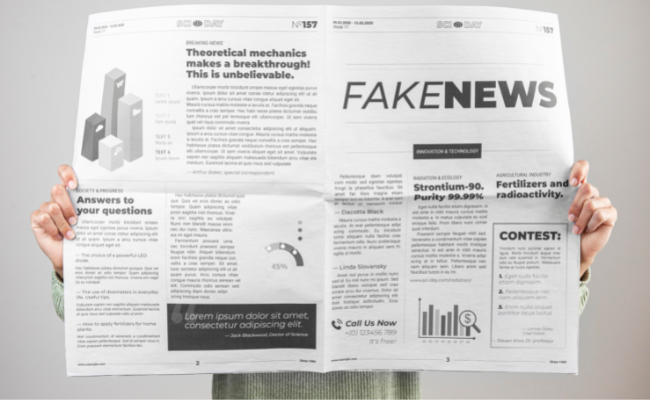Sorting Fact from Fiction: Separating True Statements
Sorting fact from fiction is an essential skill in today’s world. With the prevalence of misinformation and false claims, it is more important than ever to discern between true statements and lies.
Understanding the Importance of Verifying Claims

Verifying claims before we share them is essential, as sharing false information can lead to people not trusting us anymore and can cause harm.
Explanation of the prevalence of false information in today’s society
Misinformation, which is false information, is widespread today due to the easy sharing of information online. To avoid misinformation, it is essential to verify facts before sharing them.
Overview of the purpose of this guide and its approach to sorting fact from fiction
This guide aims to help you differentiate between truth and falsehood by providing an easy-to-follow approach.
Techniques for Separating Fact from Fiction
These tricks involve critical thinking and analysis in order to distinguish between credible and false information.
Using reliable sources and fact-checking websites
Verifying information with reliable and fact-checking sources is a great way to separate truth from fiction. These websites help ensure that the data is accurate and can stop the spread of false information.
Analyzing language and tone in claims
How words are used and how someone talks about a claim is a way to distinguish between truth and deception.
Paying attention to how words are used and the context of what is being said can help you determine if the source is credible or trying to mislead.
Examining supporting evidence and data
Examining the evidence and data behind a claim is crucial in distinguishing truth from falsehood. It helps determine if there is actual proof to support any claims or assertions.
Other methods for verifying claims
To further verify claims, look for corroborating evidence from multiple sources, seek out unbiased reporting, and assess the credibility and background of each source.
Identifying and Debunking Common Misconceptions
Misconceptions are widespread false beliefs that can remain even in the face of contrary evidence. Dispelling these myths helps to clear up any confusion and foster a deeper understanding of the world.
False political statements
Political lies can create misunderstandings and damage faith in political discourse. Disproving such false statements is essential for informed decision-making and trust in the political system.
Misleading health and wellness claims
Misleading health and wellness assertions are rampant and can be dangerous by spreading untrue facts. When assessing health information, it is essential to consult reliable sources, such as respected medical institutions and health authorities.
Fabricated science and technology claims
Misleading information can be spread when people make false claims about science and technology. Claims should be based on research and experiments, not just on people’s thoughts.
Other common false claims
Misinformation can be spread through false claims in many areas, such as history, economics, and psychology. These false claims can lead to harmful outcomes, like stereotypes and creating divisions.
Navigating False Information and Staying Informed
To make sure the information we get is accurate, we need to check facts, think carefully, and use reliable sources. It is essential now that information can be spread so quickly.
Tips for recognizing and avoiding false claims
Be suspicious of sensational headlines and look for evidence-based sources. Check the author’s credentials, fact-check with reliable organizations, and be careful of sources with a history of spreading false information.
Approaches for correcting and spreading accurate information
This can be done by checking facts, looking for reliable sources, and questioning false claims. Sharing precise information through trusted sources and clear communication will also help.
The role of critical thinking and skepticism in preventing the spread of false information
Thinking critically and being skeptical helps stop false information. Moreover, questioning, analyzing, and considering different perspectives helps people make good decisions.
Encouraging critical thinking and skepticism is important for true statements and avoiding misinformation.
Empowering Yourself with Accurate Information
Knowledge of accurate data allows you to make informed decisions, engage in meaningful discussions, and contribute to a well-informed society. Take control of the information you consume and make informed choices.
Summary of the key points covered in the guide
To fight false information, we need to think critically. Questioning, analyzing, fact-checking, and looking for reliable sources is essential. Knowing the facts and making good decisions helps create an informed society.
Final thoughts on the importance of sorting fact from fiction
It’s important to be able to tell real from fake in today’s world. False info can lead to erroneous results and stop progress.
Developing critical thinking, being skeptical of headlines, and finding reliable sources also help people evaluate info and make good decisions.
Encouragement to continue the pursuit of truth and accuracy in information consumption
Ask questions, challenge assumptions, and look at different angles. In addition, your work promoting true statements and accuracy will help the world and increase your knowledge.





